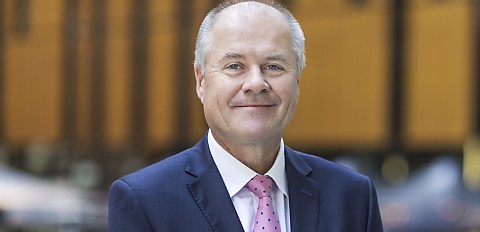COBA research shows that 84 per cent of Australians look for banks with a purpose beyond profit and many are drawn to the customer-owned banking sector because they want to know that their banking is having a positive impact on society and not just increasing shareholder value.
Customer-owned banks are focused on people and communities without the demands for shareholder returns. That’s why I wasn’t surprised to find that customer-owned banks are leading the B Corp movement in banking, with a number of COBA members now formally recognised for their positive social and environmental impact.
Certified B Corporations are companies that have been verified by B Lab for meeting high standards of environmental and social performance, accountability, and transparency.
Over 8,000 companies have been certified across the world, but currently only 57 of these businesses are deposit banks (less than 0.1 per cent) according to B Lab.
In Australia, eight authorised deposit-taking institutions (ADIs) are certified B Corporations and every single one of these ADIs is a customer-owned bank.
Notably, COBA members together represent an outsized 14 per cent of the global list of B Corp deposit banks!
Beyond Bank was the first bank in Australia to be certified B Corp, back in 2015. The mutual bank had “always held a strong belief that business should be used as a force for good”, so joining the B Corp movement was “a natural progression in many ways” as one of its executives put it.
Beyond Bank has since been followed by Teachers Mutual Bank, Summerland Bank, Bank Australia, Australian Mutual Bank, People First Bank, BankVic, and Great Southern Bank (GSB).
Great Southern Bank announced its B Corp certification last month to “deliver on (its) promise to put purpose before profits”. The bank demonstrated its impact across five key areas: customers, community, environment, team members, and governance. In the last 12 months, Great Southern Bank has unveiled a major community partnership with Mission Australia, launched its latest Innovate Reconciliation Action Plan (RAP), been named by the AFR as one of the country’s Best Places to Work, and been recognised by the Diversity Council of Australia (DCA) as an Inclusive Employer.
The B in B Corp stands for ‘benefit for all’ and because customer-owned banks are purpose-led, we are naturally aligned with the B Corp ethos.
Although the B Corp movement has never been about a more profitable corporate form, research shows that certified companies tend to be more financially sustainable than other companies.
B Corps’ focus on achieving an overall public benefit makes them attractive to customers, local communities, and suppliers – not to mention their team members, who are often proud to work for a B Corp.
Regardless of certifications, Australian customer-owned banks have served local communities with a ‘people helping people’ philosophy and by putting people first for almost 180 years.
As customer expectations of banks continue to rise, banks will need to show that they can offer so much more than competitive rates and great customer service – and the customer-owned banking sector is well placed to meet these expectations.
Michael Lawrence is the CEO of Customer Owned Banking Association (COBA).
To learn more about B Corp certification, head to bcorporation.com.au
